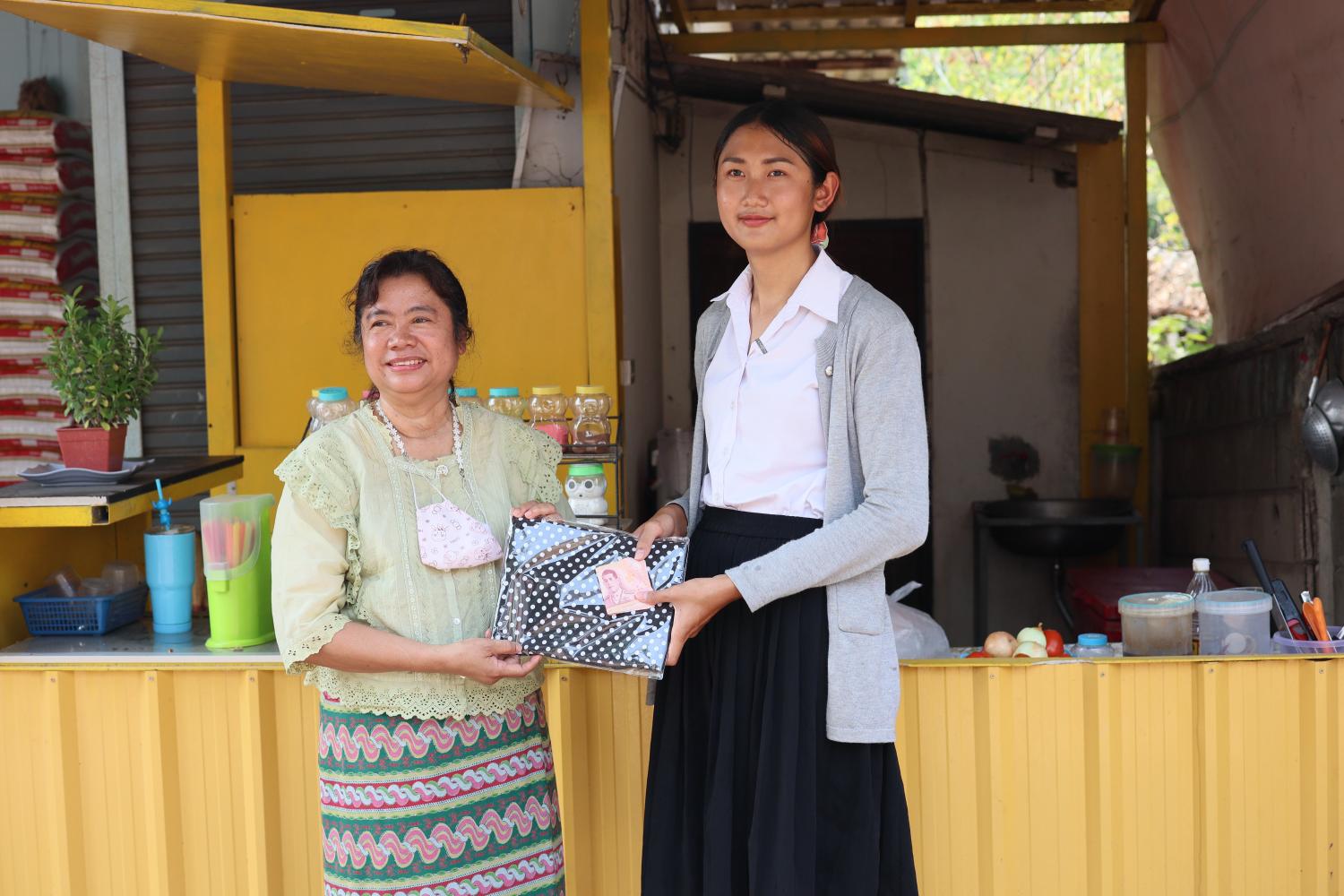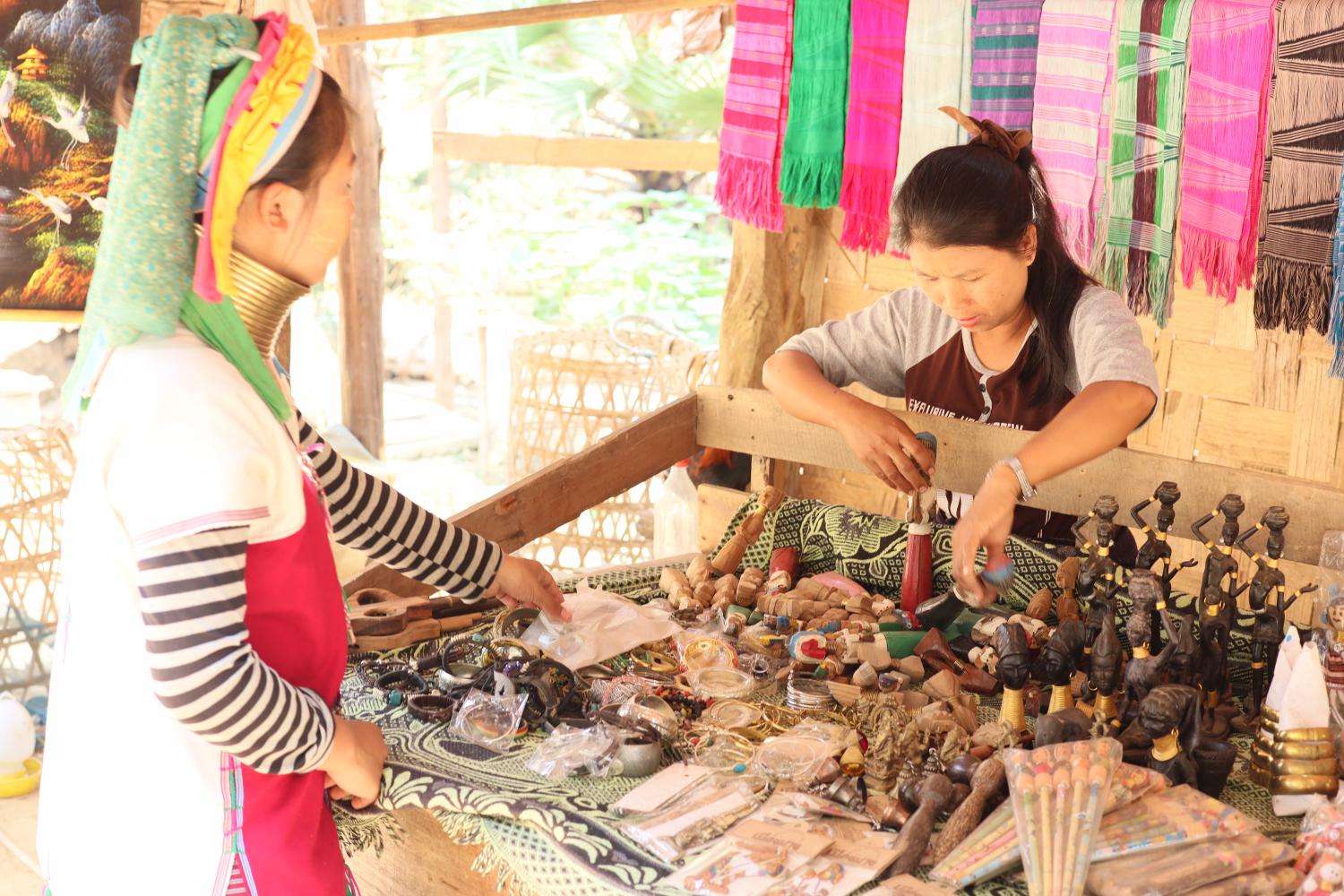In Mae Hong Son's Ban Nai Soi village, 4km by gravel road from the nearest teacher, learners have faced almost insurmountable barriers to formal education. The road is difficult to travel during flood season, there is no access to the internet and electricity is extremely limited, requiring generators and solar power.
In July 2020, the Learning Coin initiative began to bridge those gaps and the digital divide. In this second phase of the programme, 455 children including ethnic minority and stateless communities in Mae Hong Son, disadvantaged Thai and Muslim children in Nakhon Nayok and Yala, and children selling garlands in Bangkok's Yommarat community received tablets for lessons and reading materials based on multilingual content from the LearnBig application. The project aims to help disadvantaged children in the present and to make reading habits become ingrained to encourage lifelong learning.
Their daily reading data, including the number of hours, consistency and answers submitted via the application, are logged and analysed, then calculated for monthly scholarships delivered to their families. Learners can earn scholarships between 800 and 1,200 baht each month, accounting for as much as 10% of average family income.
The first Learning Coin pilot was launched in 2018, with the support of the POSCO 1% Foundation and True Corp, in partnership with the Foundation for Rural Youth, for about 150 learners in Bangkok and Pathum Thani. The model takes into account systemic factors, such as a family's ability to earn a basic livelihood as a precondition for education, in a programme that is scalable to support low-income and marginalised learners not only in Thailand but across the region.

Learner Jaikham, 17, operates a Thai spicy salad food stall in Ban Nai Soi that she opened during the pandemic. UNESCO / Pornpilin Smithveja
Unesco and UN Thailand's role in developing the model is underpinned by deep partnerships with the government, the private sector and civil society, furthering commitments to inclusive and equitable education through modest investments supporting the learners most in need. In Thailand, that commitment is founded on the landmark 2005 Cabinet Resolution on Education for Unregistered Persons, mandating 15 years of free basic education regardless of citizenship status.
The Covid-19 pandemic has affected already marginalised communities most severely, with major disruptions to education systems threatening permanent learning loss. Girls and young women are disproportionately at risk, including being unable to resume their studies and thus at the heart of the UN mandate to build back better and more equal.
"We enjoyed reading books in the app, especially comic books," said one of the six learners enrolled from Ban Nai Soi, all of whom are girls. "We also have an opportunity to study Karenni and English at the shelter and try to practise speaking Thai and English with tourists as well."

Learning Coin student Arisa, 17, left, works at her family's shop in Ban Nai Soi. UNESCO / Pornpilin Smithveja
More inclusive education policies require a society and community approach. In Yala, two brothers who are now teenagers had to drop out of formal education to support their sick mother and enrolled in a community learning centre. Their father, a janitor at a local school, believes strongly in the power of education, and their mother also began reading the lessons to support their studies.
"I started to read books and became addicted to them," said Farhan, one of the brothers who plans to attend vocational college and become a barista drawing on his passion for latte art. "Now I feel like something is missing if I am not reading. Even if I didn't earn a scholarship from the programme, I would still continue because the knowledge gained is what I value the most." His sibling wants to pursue higher education in architecture, and both have earned awards at the learning centre as inspirations for other learners.
There are still considerable challenges facing equitable education for ethnic and linguistic minority learners, girls and young women, and the most marginalised communities. From addressing financial needs and well-being to countering discrimination and lack of access to resources, innovation at the policy level needs to be complemented by initiatives that are tailored both for cultural and community context.

Twins Farhan and Sofwan are enrolled in the programme in Yala with the support of their parents. Photos courtesy of UNESCO / Pornpilin Smithveja
Chaisri Taya, the teacher who lives 4km from Ban Nai Soi village, and works at the Jong Kham Community Learning Centre of the Office of Non-Formal and Informal Education (ONIE), was previously stateless himself.
"Being stateless deprives youth of learning opportunities and achieving their full potential. Because of their status, they are not confident in attending school," Chaisri said. "They came to study non-formal education and I've seen them trying hard to learn."
After completing his bachelor's degree and obtaining Thai citizenship, "Kru" Chaisri has become a role model in his community, speaking to children and youth in the language of their shared experiences. The Ban Nai Soi students travel to his house and the learning centre by motorbike for lessons and to download content onto their tablets, which they can read offline at home, advancing their education that previously might have hit a roadblock.
These children have the same potential and aspirations as others. As they try to support their families, their dreams are varied and brimming with hope, to become a doctor, an athlete or an interpreter, so that they can live full lives in their community. These are the dreams that build healthy and more equitable societies.
Across the Asia-Pacific, Unesco Bangkok is building upon its mandate of peace and inclusiveness, equitable education, gender equity and enabling vulnerable learners. The Learning Coin project is supported by the Ministry of Education, Equitable Education Fund, teachers from 53 Thai public schools and community learning centres, and student volunteers from Chulalongkorn University's Faculty of Education, together with Mercy Centre in Bangkok and the Foundation for the Better Life of Children.
Gita Sabharwal is the United Nations Resident Coordinator in Thailand. Shigeru Aoyagi is the director of Unesco Bangkok.

